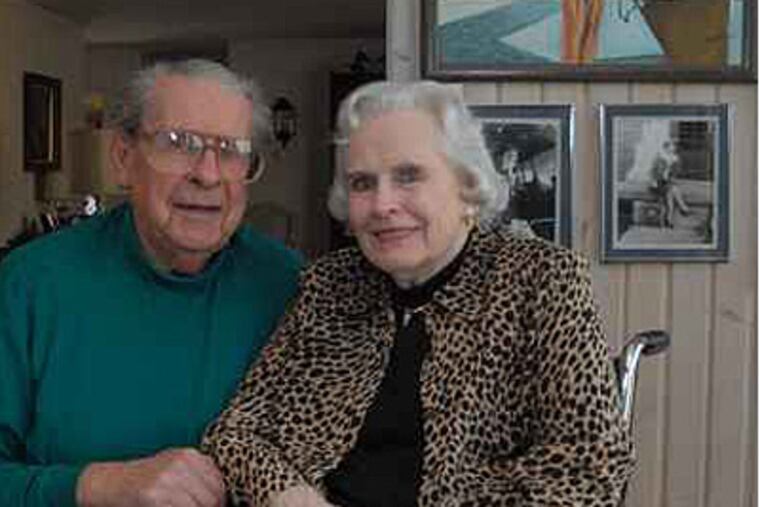
When her youngest went off to high school, Doris Gorden was ready to volunteer - "to do something," she says, "give something back."
Bryn Mawr Hospital wasn't ready for her.
At first, the woman on the phone had sounded delighted with the mother of four's offer to help. While Gorden's experience was limited to working as a hostess for Capital Airlines - "I could serve 21 full breakfasts in a 25-minute flight from Cleveland to Detroit" - she'd done loads of volunteering: Sunday school, PTA, Cub Scouts, her college sorority.
At the end of their conversation, the woman invited her to her office.
Was there a way to get there without having to take the stairs?
Why? the woman wondered.
"I've been in a wheelchair for 25 years," answered Gorden.
To this day Gorden, who contracted polio while pregnant with her third child, shudders at the memory of the woman's response.
"Well, you should have told me that right up front. We only want able-bodied volunteers."
So Gorden took her services down the street from her Willistown home, to the rehab facility then called Rush Hospital. This time, she just showed up.
She's still showing up. Thirty years later, Rush is known as Bryn Mawr Rehab Hospital, and Gorden, at 85, has barely slowed down.
She started her volunteer work in the recreation-therapy department, playing cards, "getting people out of their room and occupied." One morning a week turned into one day a week into several days a week. She joined committees, served on the hospital's board of trustees.
Quiet advocacy for the dignity of the disabled became her calling.
In 1996 she chaired a committee that staged an exhibit of works by the impaired, called Art Ability. Fourteen years later, it has grown into an international, juried competition.
You can see some of the finest pieces of years past on the walls of the home where Doris and Bill Gorden have lived for half a century. I visited this week, and before I could take off my coat, Bill, 86, was leading me to an intricate watercolor of Old Town, Alexandria.
"That's an Eric Mohn," he said. "He was a mouth painter."
Paralyzed from the neck down after an automobile accident at age 17, the Maryland artist learned to paint by holding brushes between his lips. Each painting took him about two weeks to complete and, when exhibited, about 15 minutes to sell, Doris Gorden said.
In the den hangs a painting done especially for her by Steven Johnson, once a Philadelphia teacher, left paralyzed by a rare spinal condition. Painted with his fused right wrist, The Spirit of American Women is based on a black-and-white photograph that hangs below.
The photo shows a radiant young woman in a flight jacket, her long blond hair gathered under a leather helmet. She's standing in front of a single-engine Piper Cub.
Gorden was about 20 when the picture was taken, and had already earned her pilot's license.
She'd known Bill about five years by then. They'd met in their Detroit church on Christmas Day 1940. She was engaged to someone else the day he returned from flying Hellcats in the Pacific, walked into church, and caught her eye.
"I took a look at him and went home and told my mother that I didn't think my engagement was going to work."
She was 29 when she felt a deep ache in her back and figured it was from lifting a sewing machine. "I managed to get my kids to bed." Two days later she couldn't lift herself and knew it was polio. She managed to get back into bed.
"Those were the last steps I took."
She spent six weeks in an iron lung, pregnant. After that, pretty much everything has been endurable, she said - even becoming pregnant with their fourth child 10 years later.
She still goes to therapy three times a week at Bryn Mawr Rehab. After 45 minutes of swimming and walking underwater, she spends an additional hour doing sit-ups and pull-ups, moving, she said, everything that moves.
"Life never let me down," she said. "I tell people that what's happened to me is just a nuisance. I figure if I'm still alive, there's plenty to do."